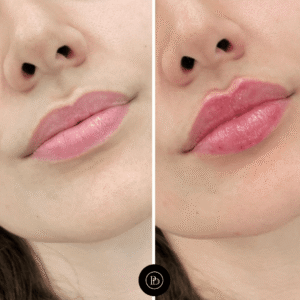Parenthood is a cherished dream for many, but some couples face medical challenges that make natural conception difficult. For these individuals, assisted reproductive techniques like IVF commonly known as the test tube baby method offer a powerful solution.
Let’s explore the various medical, genetic, and situational factors that make someone a good candidate for test tube baby treatment.
What Is a Test Tube Baby?
A test tube baby is a child conceived through In Vitro Fertilization (IVF), where an egg and sperm are fertilized outside the body in a laboratory. The resulting embryo is then implanted into the woman’s uterus. This process helps overcome several forms of infertility and has been a game-changer in reproductive medicine.
1. Couples with Long-Term Infertility
One of the most common reasons to consider a test tube baby is when a couple has tried to conceive for over a year without success. Infertility may be due to unknown causes or a combination of factors that make natural conception challenging.
IVF offers a controlled environment for fertilization, increasing the chances of success even when other treatments have failed.
2. Women with Blocked or Damaged Fallopian Tubes
Fallopian tubes are essential for natural conception as they allow the sperm to meet the egg. If a woman has blocked, scarred, or removed fallopian tubes, the chances of fertilization are significantly reduced.
IVF bypasses the fallopian tubes entirely, making it a suitable option for such women.
3. Men with Low Sperm Count or Motility
When male infertility is diagnosed due to a low sperm count, poor motility, or abnormal sperm shape, IVF—often combined with ICSI (Intracytoplasmic Sperm Injection)—can help.
With ICSI, a single healthy sperm is injected directly into an egg, making it possible for fertilization even with minimal sperm.
4. Couples with Genetic Disorders
Couples with a history of inherited genetic diseases may consider IVF with Preimplantation Genetic Testing (PGT). This allows doctors to screen embryos for genetic abnormalities before transferring them to the uterus, reducing the risk of passing on serious conditions.
5. Women with Endometriosis
Endometriosis can severely impact fertility by causing damage to the ovaries, fallopian tubes, or uterus. Women with moderate to severe endometriosis who have been unable to conceive naturally may benefit from IVF.
6. Women with Polycystic Ovary Syndrome (PCOS)
PCOS is a hormonal disorder that often leads to irregular ovulation or no ovulation at all. When other fertility treatments like medication or IUI fail, IVF offers a more effective path to pregnancy.
7. Women with Age-Related Fertility Decline
A woman’s fertility declines significantly after the age of 35. If age-related factors are affecting egg quality or quantity, IVF can be a timely solution. In some cases, donor eggs may also be considered to improve success rates.
8. Couples with Unexplained Infertility
Sometimes, all fertility tests return normal, yet pregnancy doesn’t occur. This is known as unexplained infertility. IVF provides a solution by controlling every step of the reproductive process, offering hope when the root cause remains unclear.
9. Couples Who Have Failed Other Fertility Treatments
If less invasive methods like ovulation induction or intrauterine insemination (IUI) have failed, IVF is usually the next recommended step. Test tube baby procedures often bring higher success rates after such disappointments.
10. Women with Uterine Disorders or Repeated Miscarriages
For women who have experienced multiple miscarriages or have structural abnormalities in the uterus, IVF—especially when combined with embryo screening—can help improve pregnancy outcomes.
11. Same-Sex Couples and Single Parents
IVF also offers solutions for same-sex couples and individuals who wish to become parents. In such cases, IVF is used in combination with donor sperm, donor eggs, or surrogacy.
Emotional Readiness and Financial Considerations
While IVF is a medical procedure, it also involves emotional and financial planning. Couples should be mentally prepared for the process, which includes multiple clinic visits, medication cycles, and emotional highs and lows.
Also, understanding the cost of IVF is important, as it can be expensive depending on the center, medications, and number of cycles required.
Conclusion
The test tube baby option through IVF is a lifeline for many who face obstacles to natural conception. Whether due to medical conditions like blocked tubes, male infertility, PCOS, or age-related challenges, IVF offers a pathway to parenthood that was once unimaginable. If you or your partner are facing difficulties conceiving, consult a fertility specialist to see if IVF in Lahore is the right choice for you.





